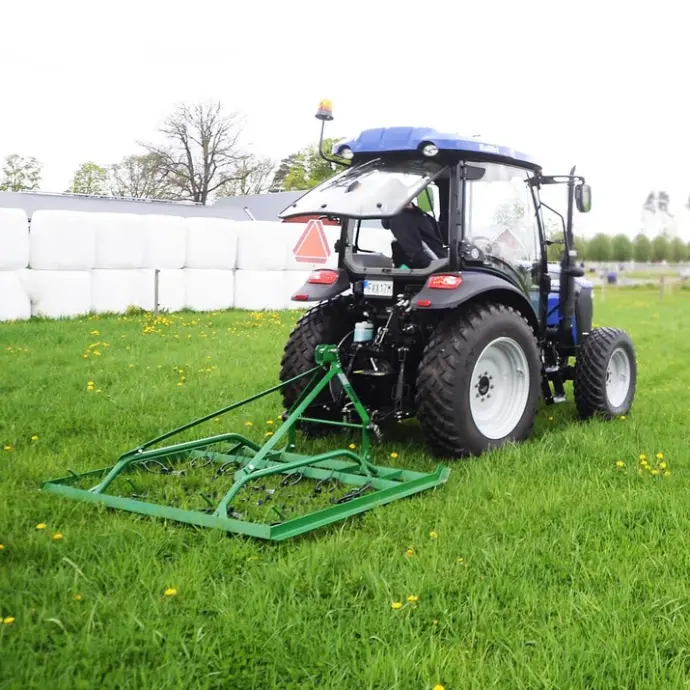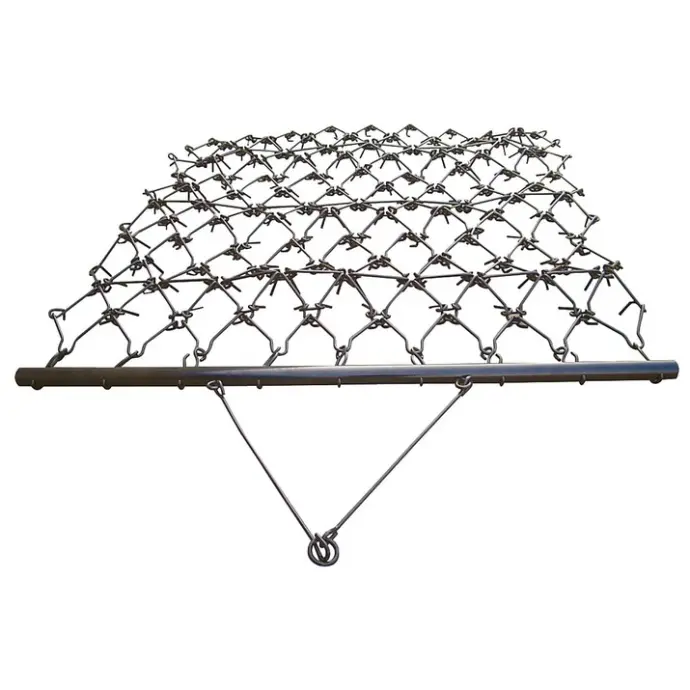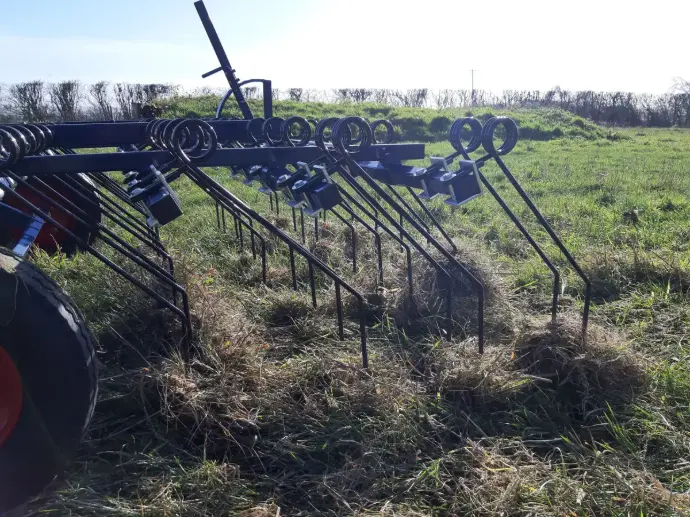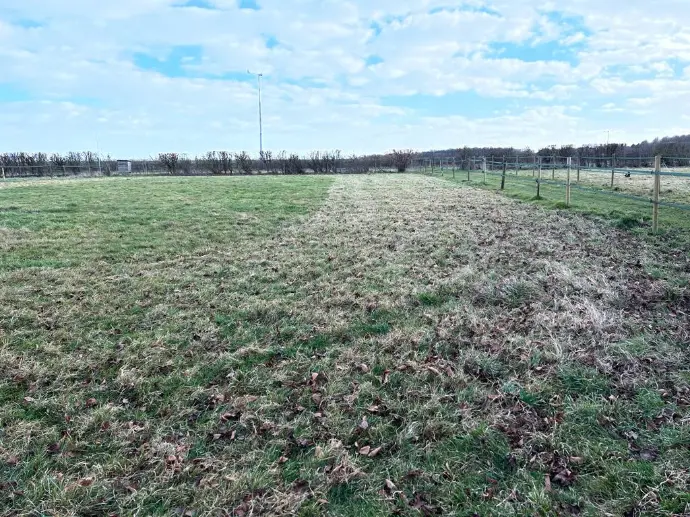Introduction to grass harrows
As the seasons change and we head into the warmer months, horse owners and land managers turn their attention to paddock maintenance, reviving the ground from another wet winter and creating optimal conditions to promote summer growth. Effective land management is essential for encouraging new grass development, ensuring an even surface, and preventing problems such as poaching from continuing into the summer months.
What Tools Do I Need?
Two popular tools for paddock maintenance are chain harrows and Spring Tine Grass Harrows. While both serve valuable purposes, they have distinct advantages depending on your specific needs. In this article, we compare the two, helping you decide which is best suited for maintaining your horse paddock.
Chain Harrow
A chain harrow is a simple yet effective tool that consists of a series of interconnected metal rings or chains. When dragged across the ground, it performs several key functions:
- Breaking up manure and mud clumps: This is essential for reducing parasites.
- Levelling the surface: This helps to distribute soil more evenly, reducing uneven ground and minor divots caused by hoof impact.
- Light dethatching: This removes loose debris and some dead grass, though not as thoroughly as other harrowing methods.
Chain harrows are particularly useful for basic maintenance, ensuring paddocks remain even and safe for horses. They can be an economical and easy-to-use option, ideal for keeping turnout areas in sufficient condition.
Spring-Tine Grass Harrow
While a chain harrow is great for levelling and breaking up surface debris, a Spring Tine Grass Harrow takes paddock maintenance a step further. Designed with rows of flexible metal tines, this harrow penetrates deeper into the soil, offering several significant benefits:
- Enhanced aeration: The tines lift and loosen compacted soil, improving air circulation and water absorption. This helps to stimulate healthy grass growth.
- Moss and thatch removal: Spring tines effectively pull up moss and dead plant material, preventing it from suffocating new grass shoots.
- Better seed distribution: If reseeding is required, a spring-tine harrow helps to distribute grass seed evenly, ensuring uniform germination.
- Stronger root structure: By aerating and removing competition from moss and thatch, grass develops deeper roots, making it more resistant to future poaching.
Looking long term, using a spring-tine grass harrow saves time, effort, and money by promoting more sustainable grass growth and reducing the need for costly reseeding or soil repairs in the future.
Conclusion
Both chain harrows and Spring Tine Grass Harrows play vital roles in paddock maintenance, but their applications differ. A chain harrow is great for surface levelling and breaking up clumps, making it a sufficient choice for general upkeep. However, if your goal is to improve the overall condition of your paddocks long term, a spring-tine grass harrow is the superior option.
Looking for advice on paddock harrows?
Reference list
ArenaMate®. (2023). Grass Harrows: What, When and Why? [online] Available at: https://arenamate.co.uk/blog/knowledge-base-13/grass-harrows-what-when-and-why-81
ArenaMate®. (2024). Root Aeration | Spring Tine Harrow | ArenaMate®. [online] Available at: https://arenamate.co.uk/blog/knowledge-base-13/root-aeration-in-grass-with-a-spring-tine-harrow-104
Wingfield, C. (2020). Year Round Harrow Guide for Pasture Maintenance. [online] American Harrow. Available at: https://www.americanharrow.com/post/manage-your-blog-from-your-live-site
World Horse Welfare. (2025). Pasture management for horse paddocks - World Horse Welfare. [online] Available at: https://www.worldhorsewelfare.org/advice/pasture-management-for-horse-paddocks/
Your Horse. (2023). Horse field management: essential paddock care to do in the spring. [online] Your Horse. Available at: https://www.yourhorse.co.uk/horse-care/ask-the-experts/horse-field-management/



